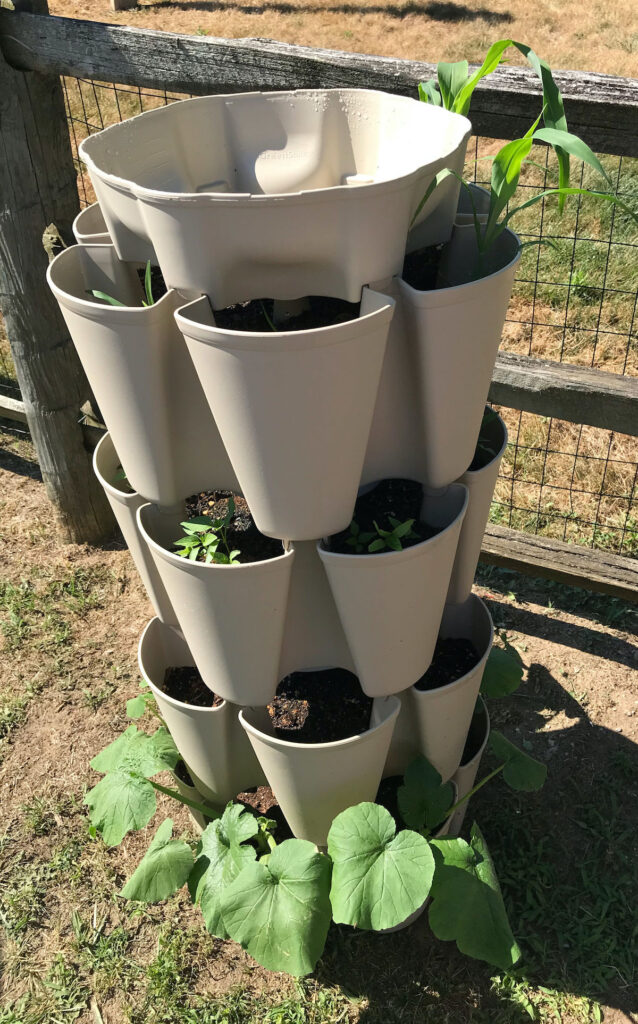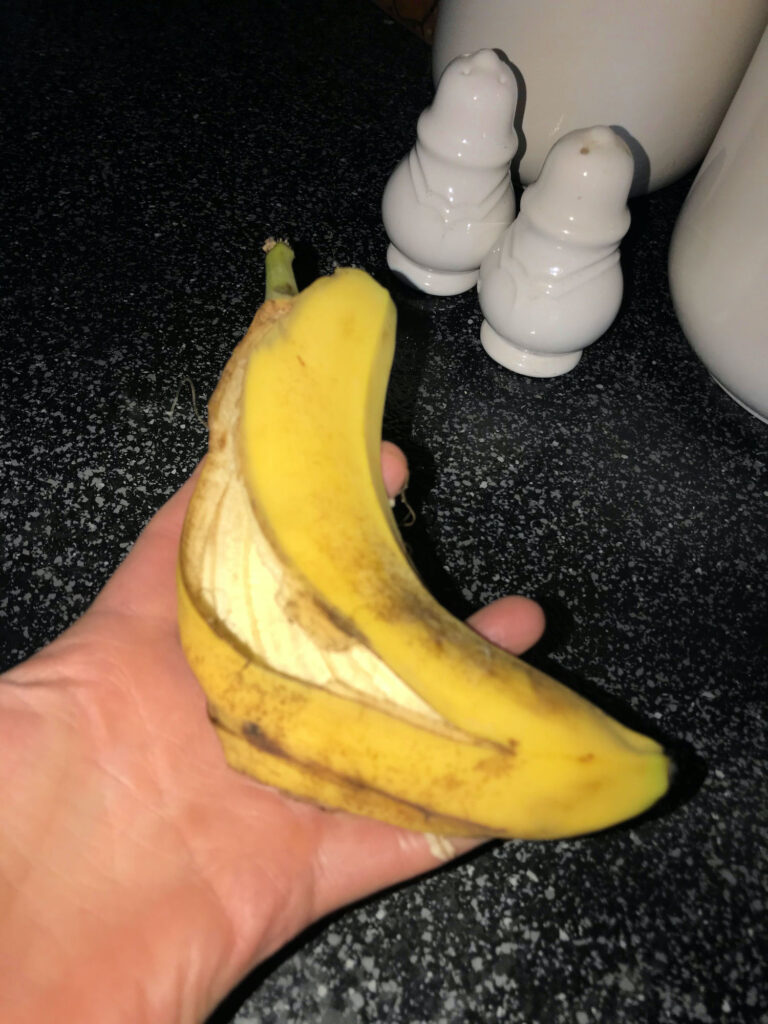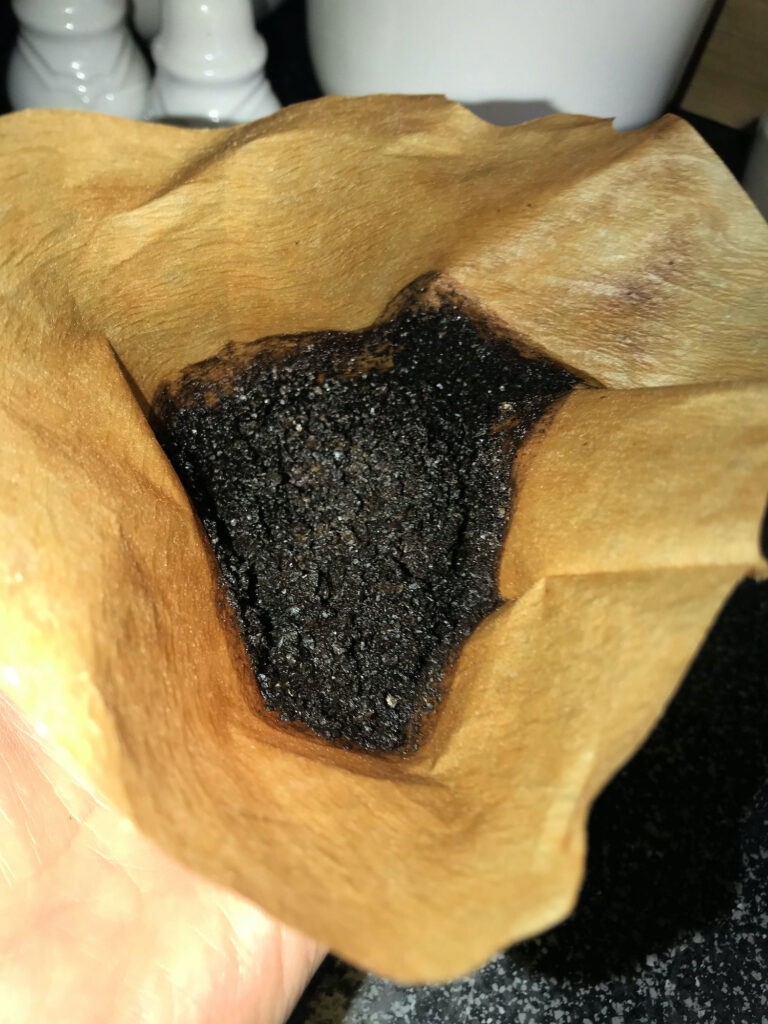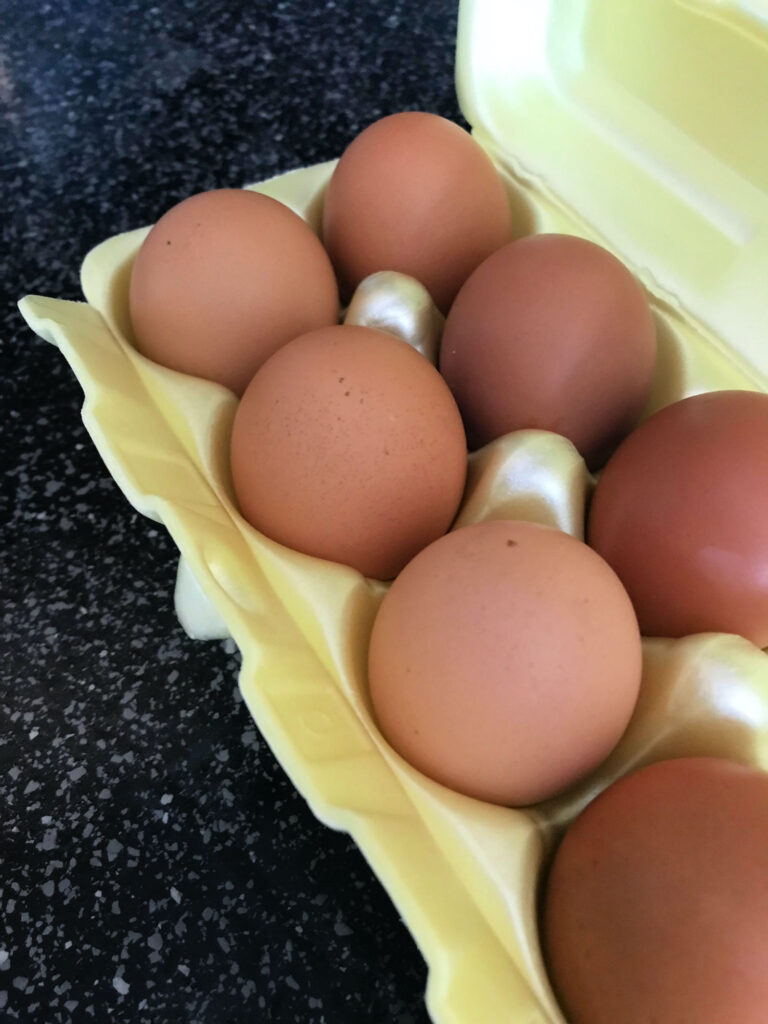If you’re gardening this year, some free organic fertilizers are likely in your kitchen right now! That’s right – free. And free is always good in my opinion!
This post includes affiliate links. When you make a purchase from my links, you won’t pay any extra but I will make a small amount that will help keep my little blog active!
Gardening had a banner year in 2020. Whether it was due to panic about food, a desire to get outside, or even just a distraction, new gardeners could be found everywhere. And judging by seed sales soaring again this year, it’s a hobby that’s not slowing down.
When you first start gardening, it can be overwhelming. What to buy? What to forget about? There are more products than you can imagine. And you’re excited to learn so there’s this desire to buy all the things. One of my favorite gardening investments last summer was my GreenStalk Vertical Planter. It comes in a range of colors and is perfect for growing herbs, getting difficult direct sown seeds started, or small space gardening.

You can snag $10 off your purchase if you want one by using the code SUNNY10 at checkout. You can check it out here and it’s worth every penny. I can’t stop raving about it.
However, buying too much right out of the gate is where an inexpensive hobby can go off the rails. It’s one of the reasons I started a mini-series on gardening on my blog, beginning with getting started with gardening. Before you overspend on something like fertilizer, here are a few free organic fertilizers that are probably right under your own nose.
Banana Peels

As you start gardening, you may notice some plants that develop yellowing leaves or brown spots. You should still do research to make sure of the ailment, but it’s likely a lack of potassium in your soil. It’s fairly common with plants like corn, but roses can also need a boost of potassium every now and then. And banana peels, not just the banana itself, has it in abundance. Working a rotten banana peel into the soil near the base of the plant helps deliver the extra potassium to its roots. Sounds disgusting, but it’s effective.
Used Coffee Grounds

Acid-loving plants like tomatoes and blueberries love their coffee as much as I do! Recycle your coffee grounds by sprinkling up the stuff left in your coffee filter on top of your soil or make a weakened extra batch of “plant coffee” by diluting the used grounds in water. I do this a lot in the summer, adding a scoop of used grounds to a watering can full of water.
Eggshells

Plants need calcium just like we do, and crushed eggshells provide it to plants that don’t like as much acid. If you have grandparents or great grandparents who garden, they probably can attest to the power of adding crushed eggshells to the soil under young transplants. They’re amazing in the garden and replace the lime you can buy at the gardening center for a lot more money.
How to Make Free Organic Fertilizers
Empty, clean 32-ounce sized yogurt containers with lids (like Chobani) are great for repurposing as food waste storage. The lids keep them pet safe and fairly stink-free. Label the tops with a Sharpie so you know which is which, poke a few small holes in the lids for air circulation, and store them in a garage or shed where they won’t be tampered with.
With bananas, there are no real tricks. Toss them in the container and they’ll start to rot quickly. For coffee grounds, I wait at least an hour after brewing so they’re already pretty dry before adding them to a container. Related side note: I can attest to the messiness of spilled coffee grounds, hence the large-mouth storage container with a lid! With eggshells, rinse them and let them dry out thoroughly before you toss them in a container. I put them in a reusable plastic bag I keep just for this purpose and crush them with a rolling pin before adding them to the container.
Larger Scale Composting
Here at Sunny Side Up, we compost a lot of food scraps because we have a big garden. For that purpose, I have a very handy countertop compost bin from Grove I bought a few years ago where I toss every kind of scrap. Grove recently changed its design from a circular receptacle to one that’s rectangular, but the reviews are just as good. The design allows oxygen to flow through so you don’t smell the table scraps. Trust me, that’s a good thing! I also buy compostable bags to line the container to keep it nice and clean overall. Once it gets full, I empty it out into some larger compost bins Matt built by our garden. If you want to do small-scale composting beyond banana peels, coffee grounds, and eggshells, just remember you cannot compost any kind of meat, oil, or dairy scraps.
I hope these gardening tips help you save some money on your newfound or tried and true hobby. Do you have any gardening secrets? I’d love to hear about them in the comments. Happy gardening!

Leave a Reply